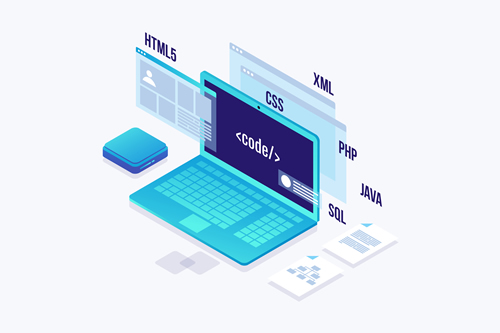It’s that time of year again—nestled between Thanksgiving and winter break is Computer Science Education Week and the Hour of Code, offering super-cool activities to keep restless students engaged in programming challenges.
This year, educators are focusing on all the things that make computer science education important and necessary for today’s students—namely, how programming builds skills like critical thinking and problem solving that help students in daily life, the fact that these students will have STEM-focused careers (including some that don’t yet exist), and the need to fill programming jobs that sit empty due to a lack of highly qualified workers.
Computer science drives innovation throughout our economy, according to stats on Code.org, but it remains marginalized in the K-12 education system. Just 15 states have adopted policies to give all high school students access to computer science courses, and of those 15, only 6 states give all K-12 students access to computer science courses.
And that career gap we mentioned earlier? Code.org has some jaw-dropping data on that: Last year, only 49,291 computer science students graduated into the workforce, but there are—brace yourselves—570,926 open computing jobs nationwide.
Computer Science Education Week runs from Dec. 3-9 this year, and the Hour of Code can take place at any point during that week. It’s a chance for teachers to demonstrate that programming careers won’t doom students to a stereotypical dark basement office with antisocial coworkers—they’re engaging, exciting, and rewarding.
You’ll find a ton of Hour of Code and Computer Science Education Week resources online. You can browse the resources on Code.org, a few of which are featured here, Google it, or you can look to your local school and public libraries for additional materials. Code.org also features hands-on, computer-free “unplugged” coding basics for schools without enough devices, without reliable internet, or for students who may learn better this way.
Here are just a few resources to get you started:
1. Minecraft: Minecraft’s newest update, Minecraft Voyage Aquatic, encourages students to use their creativity and problem-solving skills to explore and build underwater worlds with code.
2. If you’re new to the Hour of Code or don’t have time to create resources for Computer Science Education Week, look at the educator-created resources on Teachers Pay Teachers.
3. Coding with Star Wars: Star Wars enthusiasts can learn how to build a galaxy with code. Teachers and students can download an offline version if they don’t have access to the internet.
4. Kodable: Students learn basic programming concepts to build mazes and create games. Teachers can access lesson plans for basic and advanced coding activities.
5. Crossy Road: Why did the chicken cross the road? Because you told it to! Have a whale of a time as you command a chicken to obey your every command. You will learn algorithms and sequencing, inputs and outputs, and loops and iteration.
6. Project GUTS: Code.org has partnered with Project GUTS (Growing Up Thinking Scientifically) to deliver a middle school science program consisting of four instructional modules and professional development for the introduction of computer science concepts into science classrooms within the context of modeling and simulation. The goal of the program is to situate computer science practices and concepts within the context of life, physical, and earth sciences, and to prepare students to pursue formal, year-long courses in computer science during high school.
7. Libraries [Ready to Code]: The American Library Association’s [Libraries] Ready to Code initiative has a ton of resources and tools, pulled from various websites and libraries around the country, to help celebrate the Hour of Code and Computer Science Education Week.
Freebie Bonus: Flocabulary is teaming up with Code.org to celebrate the Hour of Code and Computer Science Education Week. This year’s theme is Creativity. Use Flocabulary to engage students with STEM content and challenge them to flex their creative muscles. Flocabulary uses hip-hop and standards-based content to engage students and drive academic achievement. From tech novices to coding masters, all levels of learners will find something challenging and fun on Flocabulary. Select Technology & Engineering videos are free through December 10.
- New group targets AI skills in education and the workforce - May 6, 2024
- Friday 5: Teacher stress - May 3, 2024
- Student success is impacted by issues outside of school, survey finds - May 1, 2024

